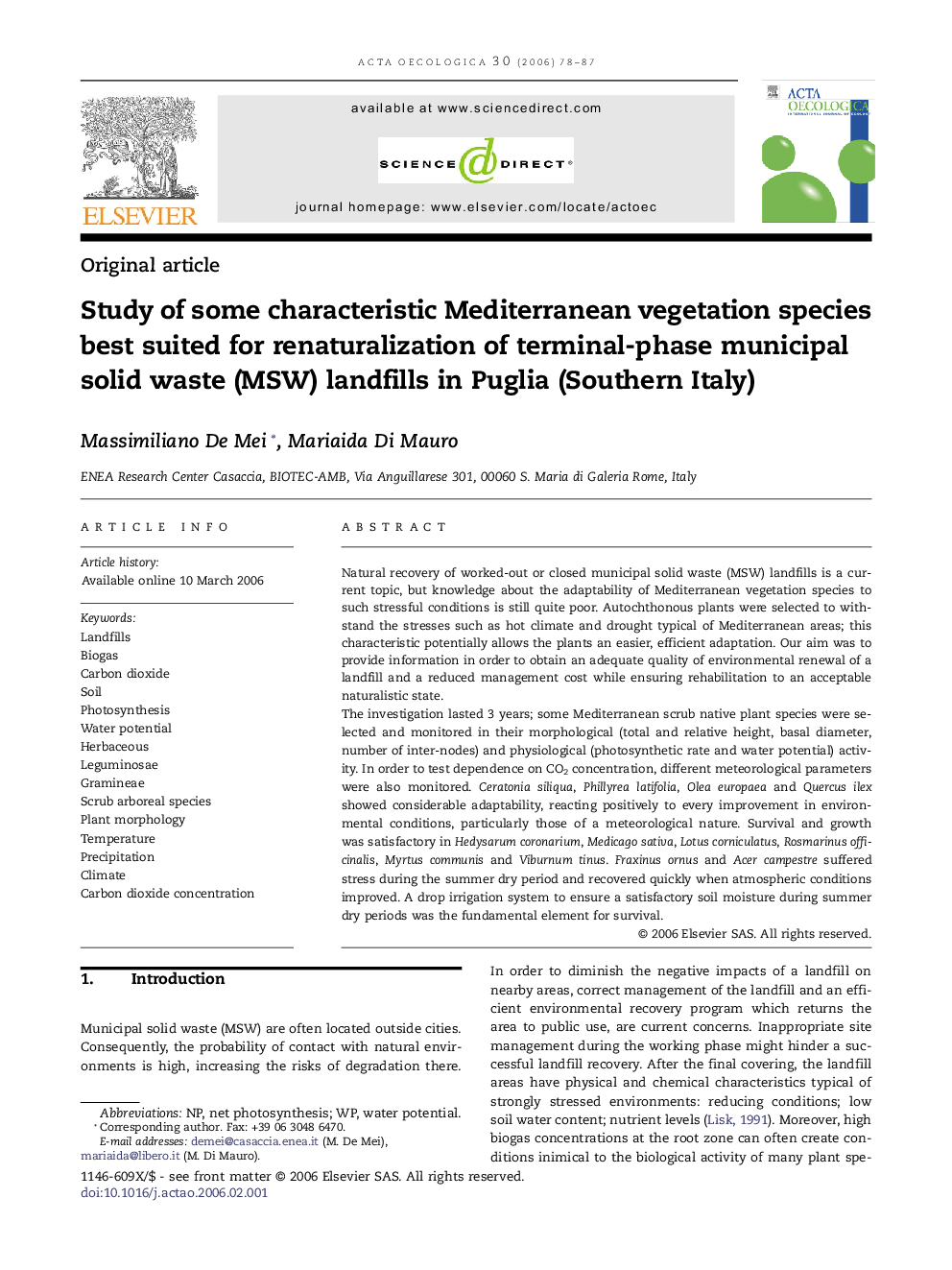| Article ID | Journal | Published Year | Pages | File Type |
|---|---|---|---|---|
| 4381232 | Acta Oecologica | 2006 | 10 Pages |
Natural recovery of worked-out or closed municipal solid waste (MSW) landfills is a current topic, but knowledge about the adaptability of Mediterranean vegetation species to such stressful conditions is still quite poor. Autochthonous plants were selected to withstand the stresses such as hot climate and drought typical of Mediterranean areas; this characteristic potentially allows the plants an easier, efficient adaptation. Our aim was to provide information in order to obtain an adequate quality of environmental renewal of a landfill and a reduced management cost while ensuring rehabilitation to an acceptable naturalistic state.The investigation lasted 3 years; some Mediterranean scrub native plant species were selected and monitored in their morphological (total and relative height, basal diameter, number of inter-nodes) and physiological (photosynthetic rate and water potential) activity. In order to test dependence on CO2 concentration, different meteorological parameters were also monitored. Ceratonia siliqua, Phillyrea latifolia, Olea europaea and Quercus ilex showed considerable adaptability, reacting positively to every improvement in environmental conditions, particularly those of a meteorological nature. Survival and growth was satisfactory in Hedysarum coronarium, Medicago sativa, Lotus corniculatus, Rosmarinus officinalis, Myrtus communis and Viburnum tinus. Fraxinus ornus and Acer campestre suffered stress during the summer dry period and recovered quickly when atmospheric conditions improved. A drop irrigation system to ensure a satisfactory soil moisture during summer dry periods was the fundamental element for survival.
